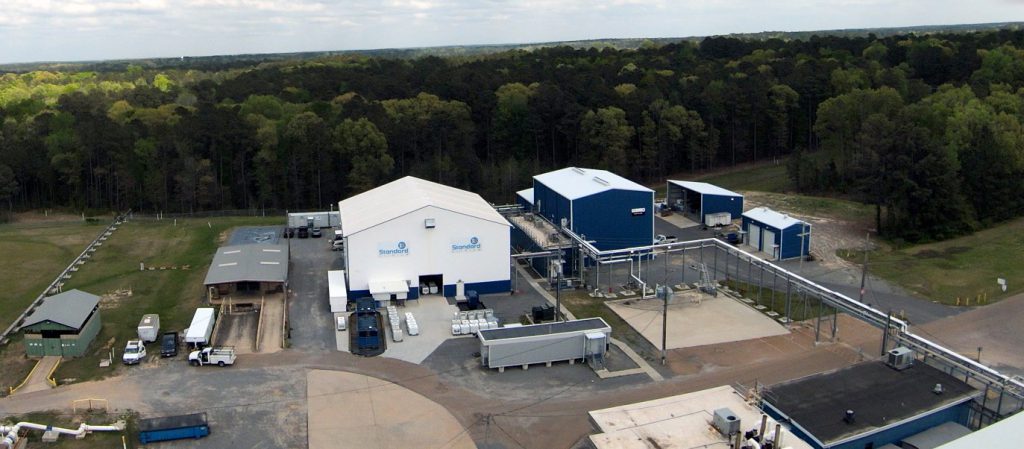Standard Lithium launches Arkansas PFS

Standard Lithium Ltd. [SLI-TSXV, NYSE, S5L-FRA] has launched a preliminary feasibility study (PFS) at its Southwest Arkansas lithium project, also known as the Lanxess Project.
The study is in line with Standard’s plan be a North American supplier of lithium chemicals by bringing the first new commercial lithium project into production in the U.S. in six decades.
“We expect to complete the bulk of the work through the balance of 2022, with completion and reporting of the results of the PFS in Q1 2023,” said Standard Lithium President and CEO Dr. Andy Robertson.
He said the PFS will consider an integrated project, including brine supply and injection wells, pipelines and brine treatment infrastructure, a Direct Lithium Extraction plant using the company’s proprietary LiSTR technology, and a lithium chloride to lithium hydroxide conversion plant.
Standard has engaged Hunt, Guillot & Assoc. from Ruston, Louisiana as the lead consultant to prepare and co-ordinate the PFS with support of a multi-disciplinary technical team.
Standard Lithium shares declined on the news, falling 8.6% or 71 cents to $7.53 in light trading activity. The shares are currently trading in a 52-week range of $15.92 and $3.37.
The PFS is being launched after the company recently tabled positive results of preliminary economic assessment (PEA) as well as an updated inferred mineral resource for the Southwest Arkansas lithium project.
Standard is a technology and lithium development company engaged in the testing and proving of the commercial viability of lithium extraction from over 150,000 acres of permitted brine operations.
The company has commissioned a first-of-a-kind industrial scale direct lithium extraction demonstration plant at Lanxess’s south plant facility, which is located 50 kilometres east of the South West Arkansas project. The demonstration plant utilizes the company’s proprietary LiSTR technology to selectively extract lithium from the project’s tail brine.
The demonstration plant is being used for proof-of-concept and commercial feasibility studies.
Standard says the process eliminates the use of evaporation ponds, reduces processing time for months to hours and greatly increases the effective recovery of lithium.
The PEA was updated to consider the potential unitized area of production, leading to an increased total in-situ resource of 1.19 million tonnes of Lithium Carbonate Equivalent (LCE) at the inferred category.
The lithium brine inferred resource is contained within the Upper and Middle Members of the Smackover Formation, a late Jurassic limestone aquifer that underlies the entire project.
The PEA envisages a direct capital cost of US$532, with indirect costs of US$205 million. A contingency of 25% was applied to the direct costs (US$133 million) to yield an estimated all-in capital cost of US$870 million and operating costs of US$2,599 per tonne of battery quality lithium hydroxide.
The SW Arkansas Lithium project is based on the company’s existing brine leases which are maintained through an option agreement with Tetra Technologies Inc. [TTI-NASDAQ], a U.S. company, that has a net lease area of 11,033 hectares.
